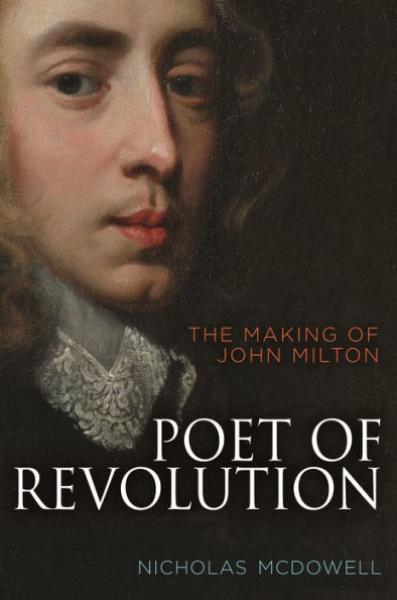Description
A groundbreaking biography of Milton's formative years that provides a new account of the poet's political radicalization
John Milton (1608-1674) has a unique claim on literary and intellectual history as the author of both Paradise Lost, the greatest narrative poem in English, and prose defences of the execution of Charles I that influenced the French and American revolutions. Tracing Milton's literary, intellectual, and political development with unprecedented depth and understanding, Poet of Revolution is an unmatched biographical account of the formation of the mind that would go on to create Paradise Lost--but would first justify the killing of a king.
Biographers of Milton have always struggled to explain how the young poet became a notorious defender of regicide and other radical ideas such as freedom of the press, religious toleration, and republicanism. In this groundbreaking intellectual biography of Milton's formative years, Nicholas McDowell draws on recent archival discoveries to reconcile at last the poet and polemicist. He charts Milton's development from his earliest days as a London schoolboy, through his university life and travels in Italy, to his emergence as a public writer during the English Civil War. At the same time, McDowell presents fresh, richly contextual readings of Milton's best-known works from this period, including the "Nativity Ode," "L'Allegro" and "Il Penseroso," Comus, and "Lycidas."
Challenging biographers who claim that Milton was always a secret radical, Poet of Revolution shows how the events that provoked civil war in England combined with Milton's astonishing programme of self-education to instil the beliefs that would shape not only his political prose but also his later epic masterpiece.
"This is a new account of the intellectual, literary and political development of one the central poets in the English canon. Author Nicholas McDowell follows John Milton more or less from his birth in 1608 and his education to his emergence as a polemical prose writer in the 1640s, concluding at the moment when Milton turned his pen to defending the execution of Charles I in 1649 in the closing years of the English Civil War, though several years before the onset of the poet's blindness and the composition of Paradise Lost. As the author makes explicit, this is not a book about the writing of Milton's great biblical epic; rather, it is a book about the formation of the mind that eventually would create this epic, though only after that same mind, of course, justified the killing of a king. Central to the book is Milton's evolving understanding of the ways in which 'tyranny'-defined initially in ecclesiastical and clerical terms but which grows to encompass political organization-retards the intellectual and cultural progress of a nation. McDowell demonstrates how this understanding was shaped not only by Milton's historical experience of the political turbulence of mid seventeenth-century Britain, but also by the interaction between that experience and his intellectual life. This, the author says, was Milton's period of intensive and almost entirely orthodox reading in history and religion, and it was then that he came to see any clerical encroachment upon civil authority as tyranny. His intellectual pursuits, in tandem with wider events, led him to turn to explicitly political prose writing in the defence of regicide at the beginning of 1649. This biography of the first half of the poet's life shows us how John Milton the young poet, scholar, humanist, and universalist became John Milton the puritan, republican and polemicist"--
[A] tour-de-force pilgrimage through Milton's formative years. . . . Poet of Revolution is a heroic work, a judicious and well-written biography of England's greatest poet.---Paul Krause, Merion West
[McDowell] transforms our understanding of Milton's emergent worldview with intelligence, authority and considerable flair.---Rhodri Lewis, Prospect
Make room for Professor McDowell's work, erudite, engaged, original, and illuminating.---Paul Hammond, Seventeenth Century
Nicholas McDowell's erudite Poet of Revolution: The Making of John Milton helps us understand why and how Milton pursued poetic glory. . . . [He] skillfully integrates Milton's literary world with his dangerous, complex, and rapidly changing world of religion and politics.---A.M. Juster, Los Angeles Review of Books
[A] magnificent intellectual biography.---Daniel Johnson, Law & Liberty
This new book by Nicholas McDowell is superior to anything that I've yet read.---Paul Lay, FiveBooks
A terrific work of scholarship.---Jonathan Bate, Catholic Herald
One of my favorite non-fiction works this year. . . . Every page is enjoyable.---Tyler Cowen, Marginal Revolution
Product Details
- Princeton University Pres Brand
- Oct 27, 2020 Pub Date:
- 0691154694 ISBN-10:
- 9780691154695 ISBN-13:
- 502 Pages
- 9.4 in * 6.2 in * 1.7 in Dimensions:
- 2 lb Weight:




